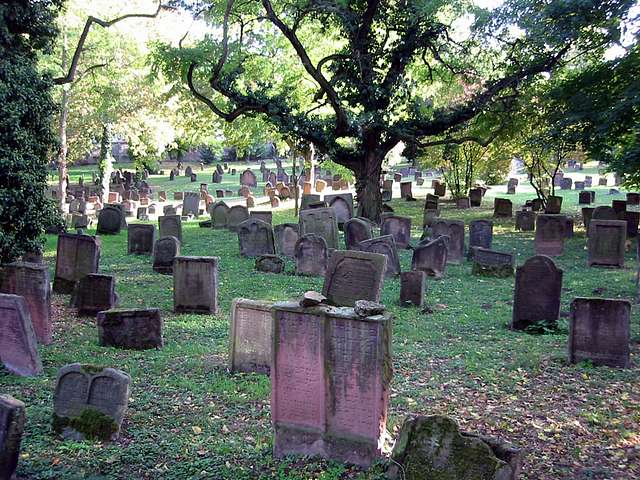by Rabbi Ze’ev Smason in the St. Louis Jewish Light
Fourteen years ago, I received an unusual phone call. The call was from a nun. Sister Mary called to tell me that Dale, a Jewish man who was a student of mine, had suddenly passed away at the age of 45.
She asked if I could assist her in raising enough money to pay for his cremation.
Enjoy what you're reading? Subscribe for more!
Judaism strictly prohibits cremation. At that moment several thoughts raced through my mind. I certainly couldn’t participate in assisting with a cremation. If I were to decide to become involved, what were the chances that I could convince Sister Mary and Dale’s ex-wife that Dale should be given a Jewish burial and not cremated? And even if I managed to convince them, how could I possibly come up with thousands of dollars needed to pay for a burial?
Before sharing what happened, I’d like to discuss the importance of Jewish burial. Much of the following is taken or adapted from “Last Kindness,” a nonprofit dedicated to helping every Jew choose and receive Jewish burial (LastKindness.org).
The Torah teaches that every Jew, no matter how “Jewish” they lived — or did not live — has the right to be buried as a Jew. Burial is how the Torah teaches every human being should be cared for when they die. Burial is an act of kindness and respect. It’s a kindness to the soul and body of the deceased, it’s a kindness to the planet, and it’s a kindness to the remaining loved ones as well.
Remember the respectful treatment Queen Elizabeth’s body received? You deserve no less. Really. Blue blood doesn’t make a bit of difference at the end. Every human body should be treated with respect — both in life and in death. The human body is sacred, having housed the soul, and should be treated as such.
Our heritage as Jews matters, and having a Jewish burial tells the world you are proud of it. The primary reason we choose burial is that it’s a mitzvah to bury the dead. A direct reference to burial can be found in Genesis: “For dust you are, and to dust you shall return.” (3:19) Torah and traditional Jewish law are replete with references to the importance of providing burial for every human being. Although having a grave provides closure and comfort to remaining loved ones, even if no one will ever visit the grave, burial has intrinsic value for the deceased. There is no greater example of this than Moses, the greatest Jewish leader of all time who was buried by G-d Himself and G-d vows that no one will ever visit his grave.
Jewish afterlife-care is particularly gentle and kind in its treatment. Throughout the entire process, care for the body is carried out quietly, gently, and with great reverence, recognizing the body as the sacred creation it is. And traditional Jewish burial is eco-friendly. It uses a simple pine coffin, biodegradable shrouds and absolutely no chemicals. The body decomposes gradually and becomes one with the earth.
On a spiritual level, Jewish burial is an act of kindness to the departed soul. Our body isn’t our true essence our soul is — and it lives forever. Yet the soul remains with the body even after the two are separated at death. The soul still feels connected to the body and is sensitive to how its lifelong partner is being treated.
Why not opt for cremation? Cremation is not only an act of violence against the deceased, which pains the soul, but it actually severs the connection between the body and soul, causing the soul eternal pain. Additionally, we don’t burn things we love. As an 11-year-old boy I remember when my pet turtle died. I lovingly placed it in a shoebox, and gently bid it farewell in a backyard funeral service. If anyone would have mentioned throwing the remains of my beloved pet into a bonfire, I would have been appalled. We love our pets. And by magnitudes difficult to measure, we love our dear relatives.
To return to the story with which I began: I told Sister Mary that according to Jewish law, Jews have to be buried. She paused, and said, “ ‘Rabbi, I agree with that!’ I called Dale’s ex-wife, who said she would be grateful if a Jewish burial could be arranged. I called the director of a local Jewish funeral home who said, ‘Rabbi, see how much money the family can afford. We’ll do the funeral, regardless, and I’ll do what I can to get a cemetery to donate a plot.’”
The ceremony was most unusual. There was a rabbi and a nun. But more significantly, there was kindness and generosity. Dale’s family and many members of the Jewish community were in attendance. This was appropriate, I felt, because Dale was a kind and generous man. He was not a man who went to synagogue. Nor was he an observant Jew. But Dale was a proud Jew and was buried like a Jew.
Traditional Jewish burial is kinder to your body, kinder to the planet, kinder to your relatives, and kinder to your soul. And as Jews, traditional Jewish burial connects us to our glorious 3300-year heritage, as well as connecting us to our Jewish mothers and fathers throughout the ages who lived as Jews and who died as Jews.
Originally published in the St. Louis Jewish Light


